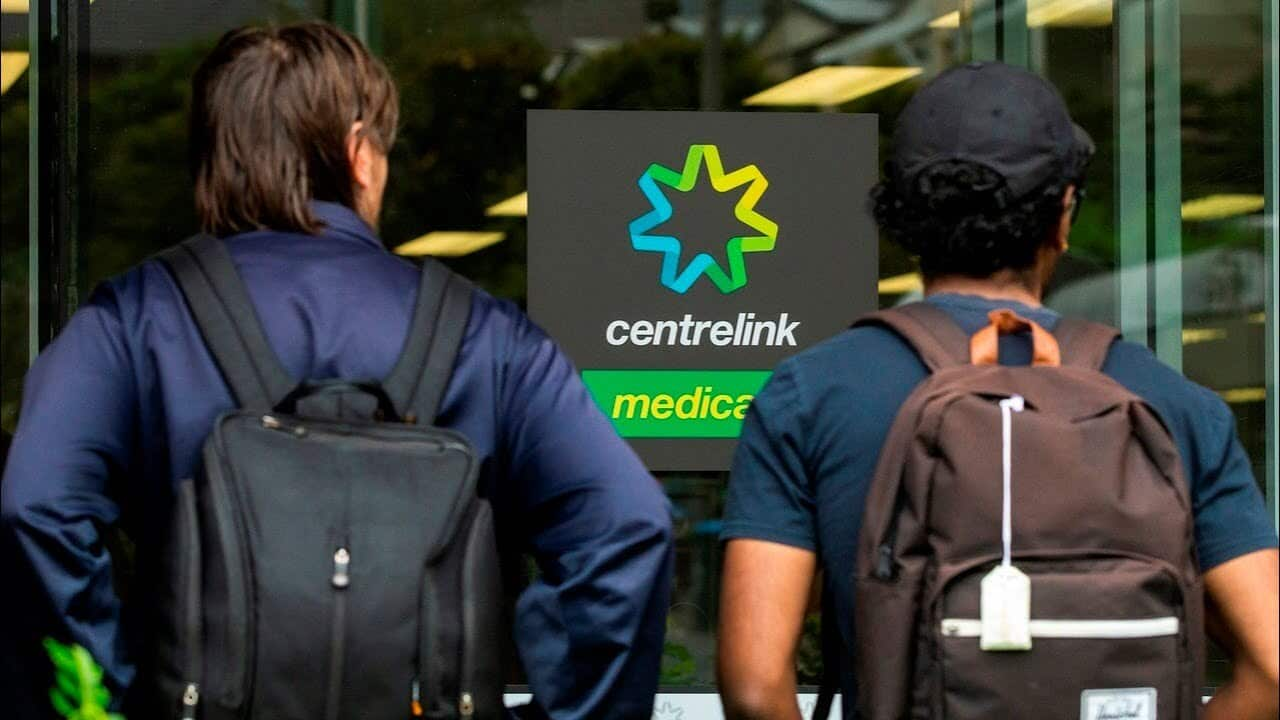Welfare groups have warned a Senate committee about the federal government’s plans to cut the level of some welfare supports from January next year.
The Australian Council of Social Services, Anglicare Australia and the Council on the Ageing on Wednesday appeared before Senators reviewing a government bill to extend the temporary coronavirus supplement.
The federal government this month announced it would wind back the fortnightly payment from 1 January - to a reduced rate of $150 per fortnight
JobSeeker, some student payments and some parenting payments were initially boosted by a coronavirus supplement of $550 per fortnight.
This supplement was reduced to $250 per fortnight in September, and will be further reduced to $150 per fortnight from 1 January.
ACOSS chief executive Cassandra Goldie said the slow winding back of payments was having a "corrosive effect" on the mental health of welfare recipients.
“The current level that is being proposed in this bill is going to deliver a cruel and damaging cut to the basic lives of people currently affected by unemployment,” she told the hearing.
"It is very clear that people on JobSeeker are currently in extreme desperation - particularly if we are now sliding back towards that $40 a day."
The pre-pandemic JobSeeker payment averaged roughly $40 per day before the coronavirus supplement was introduced.
Prime Minister Scott Morrison said the supplemental payment has cushioned the blow of the coronavirus recession as welfare recipients struggle amid surging unemployment levels.
The extended coronavirus supplement is set to be paid at the rate of $150 per fortnight until March - but the government has provided no clarity on the future of the payment beyond that point.
The Australian Council of Social Services, Anglicare Australia and Council on the Ageing are together demanding a permanent increase to the JobSeeker rate.
Anglicare Australia executive director Kasy Chambers said this uncertainty is taking a toll on welfare recipients.
“We are seeing huge increases in anxiety and depression among people who are on these payments because of uncertainty,” she told the committee.
“They have not seen that there are jobs on the horizon - [but] they are seeing their debts coming back into play... we know the jobs aren’t there, we know they simply aren’t there.”
The federal government has said it is still considering a permanent increase to the JobSeeker rate - but is holding off on making a decision until there is more certainty around the current economic environment.
ACOSS and Anglicare Australia have both opposed the government’s bill.
The Council of the Ageing supports it, but has raised concerns over the level of welfare support set to be delivered.
The council's deputy chief executive, Cory Irlam, said it was a flawed position to not lock-in a permanent JobSeeker increase.
“If government is going to build back better it needs to put an iron floor into the JobSeeker rate,” he told the committee.
“It is unfortunate that the government has gone down the path of only a temporary increase.”
Treasury last month forecasted the number of people on the JobSeeker payment could increase from about 1.5 million to 1.8 million by Christmas.
PM pressed on robodebt responsibility
The debate over the future of the welfare payments comes as Prime Minister Scott Morrison faces further questions over his part in the federal government’s robodebt scandal.
Mr Morrison was social services minister when the scheme was conceived and he touted the billions of dollars it was supposed to rake in during his time as Treasurer.
Mr Morrison continued the welfare debt recovery program as Prime Minister and pinned a promised return to surplus in part on its projected windfall.
"It's actually not about the computer, it's about the assumption made that a debt is raised by averaging people's incomes," he told Sydney radio 2GB on Wednesday.
"Income averaging was found not to be a valid means of raising a debt, that's what it's about. This is just the Labor Party trying to throw some mud."
Labor is pushing for a royal commission into the robodebt program.
Additional reporting AAP













